Dear Britons, Please Keep Away from the Brexit!
Adelina Marini, May 4, 2015
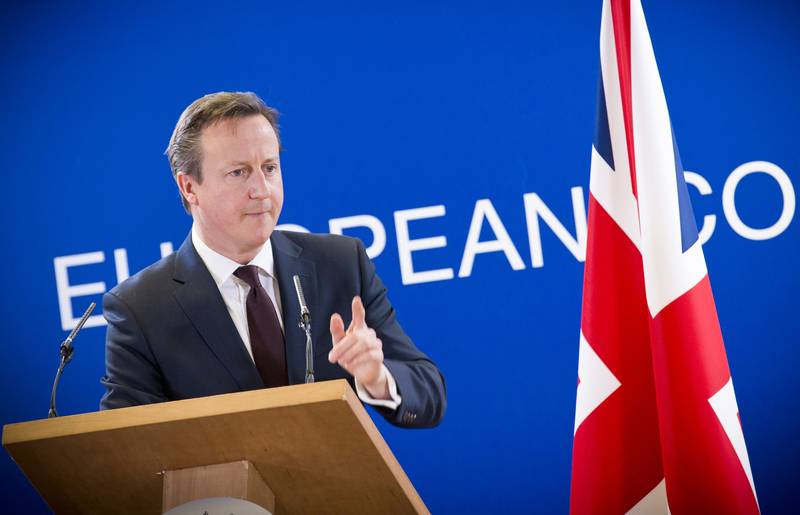 Europe is not the most important issue in the British election campaign but it definitely is among the issues that are being debated. According to the Social Media Election dashboard, Europe is the 7th most discussed issue in the social networks. It is at the same level as education. The top issues in the social networks in Britain are Scotland, migration, the economy and welfare. Europe, however, is visibly present in the election manifestos of the leading political parties and was one of the few questions asked during the first leaders' debate on 2 April. Then everyone turned against Nigel Farage and David Cameron and clearly stated that they were for staying in the EU. But with significant nuances. Farage provoked them by saying that all the six leaders supported the EU and the opening of the doors to migration.
Europe is not the most important issue in the British election campaign but it definitely is among the issues that are being debated. According to the Social Media Election dashboard, Europe is the 7th most discussed issue in the social networks. It is at the same level as education. The top issues in the social networks in Britain are Scotland, migration, the economy and welfare. Europe, however, is visibly present in the election manifestos of the leading political parties and was one of the few questions asked during the first leaders' debate on 2 April. Then everyone turned against Nigel Farage and David Cameron and clearly stated that they were for staying in the EU. But with significant nuances. Farage provoked them by saying that all the six leaders supported the EU and the opening of the doors to migration.
The leader of the Scottish National Party (SNP), which is currently the top issue in the British public domain, Nicola Sturgeon, said during the debate that Farage wanted to take Britain out of Europe whereas Cameron was getting the country dangerously closer to the exit. She also threw the big bomb in that debate demanding the votes for a possible in-out referendum to be counted separately in each of the nations of the United Kingdom. This, she said, would ensure that neither of the nations would be taken out of the EU against its will. Labour leader Ed Miliband, who was trying all the time to put the battle into the old and no longer valid course of the two-party fight between Tories and Labour, announced that Europe was not among his priorities. "There are better priorities for this country", he said during the debate on 2 April.
What do the manifestos say on Europe?
Although he says it is not his priority, in the Labour manifesto the issue of the EU has a decent place. It says that the Conservatives are harming the country's interests by turning their backs on Europe and are isolating Britain internationally. Labour believes that EU membership is at the core of the British prosperity and security. But as this is now an open issue Ed Miliband's party is also convinced that UK needs to work for a change of the EU "so that it operates in the best interests of our country". If they win the election, Labour will focus on the completion of the single market and on tighter budget discipline, including in terms of those EU policies spending on which could save money on national level. This means a reform of the Common Agricultural Policy (CAP) and a review of the spending for European agencies, done by the Commission, with the aim to reduce spending waste and inefficiency.
Labour would also like further opening of the decision-making process in the EU and some institutional reforms that would restore the confidence of the European citizens. This includes also strengthening the influence of the national parliaments over European legislation through the introduction of the "red card" instrument for countries that have strong parliamentary oversight.
The position of the Conservative Party is well known and has not changed in their manifesto. The Tories commit not only to hold an in-out referendum in 2017 but also reclaiming powers from Brussels, protection of the British interests in the single market, completion of the ambitious trade agreements with third countries, reducing the red tape. The Tories are convinced that they are the only ones who can ensure change in Europe. They pledge that in the first session of the next parliament that will propose a law on a referendum in 2017 and will negotiate new relations with the EU. They will protect the British economy from further integration in the euro area. It is also very important for the Conservatives to further reform the CAP and the structural funds so that the EU money is better focused on jobs and growth.
The Liberal Democrats (LibDems) are very brief in their platform, including on the Europe issue. They firmly state that they want Britain to stay in the EU because this means stronger economy and jobs. In addition, the EU membership ensures power globally in climate change negotiations, trade agreements and the introduction of sanctions against Russia. The LibDems are also of the opinion that the EU needs a reform aimed at job-creation, fight against climate change and trans-border crime.
The British Greens also have a lot of space in their manifesto for Europe, saying that the United Kingdom is part of Europe. "We cannot cut ourselves off from our geography or its political realities", the manifesto says. According to the Greens, many of the European actions are progressive: protection of fundamental rights, peace and security through mutual understanding, protection of the environment, spreading of culture and ideas, regulation of the financial system. But still, the Greens prefer the member states to rely more on themselves than on the EU's "unsustainable economy". The euro is not working properly because it lacks deeper political integration which, for its part, is contradictory to the subsidiarity, the Greens believe. They will support a possible in-out referendum in 2017 not because they want the UK out of the EU but because they believe people need to have a say. And also because a lot has changed since Britain joined the common market in 1974.
"Endless debate on membership is a diversion from more important matters, such as ending inequality and adapting our economy to One-Planet Living. So it’s yes to Europe, yes to reform of the EU but also yes to a referendum", is the Greens' position.
SNP wants a double majority requirement set in the law on the referendum so that each of the Constitutional nations of the UK to be able to vote for a withdrawal before the UK as a whole would withdraw from the EU. The Scottish nationalists are against leaving the EU in general because this would mean a loss of 330 000 Scottish jobs, which means one in every seven jobs is dependent on the single market. SNP believes also that the devolved administrations need to have a stronger role in the EU Council of Ministers. They also want a more direct participation of the devolved administrations in the European institutions. In addition, following the example of the independence referendum last year, the nationalists want the 16- and 17-year olds to be able to vote in national and European elections. And a nother important and different thing - the SNP is against Britain's withdrawal from the European Convention on Human Rights.
nother important and different thing - the SNP is against Britain's withdrawal from the European Convention on Human Rights.
The chapter that deals with the relations with Europe in the UKIP manifesto is unequivocally titled "Brexit". UK Independence Party's position is already well known. However, in their programme the eurosceptics are trying to explain that they are unfairly and misleadingly called an anti-European party. "We are not ‘anti-Europe,’ but we are firmly opposed to political integration within Europe". Apart from that, the eurosceptics believe that a reform of the EU is impossible. The European Parliament is not a guarantee of democracy but just an imitation of democracy. The MEPs are not allowed to generate or to get back to existing legislation. They can only vote on decisions taken by unelected commissioners or their vote is ignored. "Genuine reform is impossible: successive EU Presidents, senior officials and European Prime Ministers have confirmed there is no hope of Britain negotiating any opt-outs, or special treatment", Nigel Farage's people claim.
Myths and legends
Some of the claims in the election manifestos, especially of the eurosceptics and Conservatives, are at least incorrect or misleading. For example, Cameron's Tories claim they want more powers for the national parliaments, but in the same time a study by the pro-European British think-tank Centre for European Reform shows that although even now the national parliaments have influence over European policies they are not using it. In the British parliament there is a special committee that reviews European legislation. The committee complains, according to CER's study, that they demanded six parliamentary debates on European issues which, however, never took place.
One of the issues was freedom of movement of EU citizens which is central in British politics and in the election campaign, writes Agata Gostyńska. One of the arguments the government gave the committee to respond to its criticism is that just a few British MPs are interested in EU. This brings up the question how, then, would a possible increase of the role of national parliaments in the decision-making process of the EU would improve the current situation.
Another myth, spread by Farage's eurosceptics, is that the EU cannot be reformed. This is completely untrue, especially if one would have a look at the last five years since the beginning of the financial and economic crisis, especially in the euro area. Besides, it is strongly misleading that the role of the European Parliament is said to be only imitating democracy. After the entry into force of the Lisbon treaty on 1 December 2009, the parliament received much greater powers which have been used to the maximum in the previous mandate. The European Parliament is a co-legislator on many key European issues. The MEPs played a strong role in the negotiations on the reform of the Schengen legislation, of EU's multiannual budget, the banking union and at the moment the European Parliament is preparing for a heavy fight with the Council on another big European dossier - Juncker's investment plan.
In their election manifesto UKIP claim that with the EU enlargement the voice of Britain has become insignificant in the Council of Ministers, in the European Parliament and in the Commission. Yes, it is true that Britain's influence has sharply decreased but that is because of the model of behaviour David Cameron chose. In the Council, some issues are voted with a qualified majority which weighs the number of states in relation to the population they represent. In this way is ensured the best possible fairness and weight of votes no matter of the Union's enlargement. On other issues, ministers or leaders vote with unanimity as was the case with the fiscal compact. And although during David Cameron's rule UK's influence in EU sharply diminished, it is a fact that he managed to achieve nominal cut of the EU common budget, which is a precedent against the backdrop of the last enlargement in 2013 when Croatia joined the Union.
How does Europe see the elections in Britain?
 A week before the election euinside spoke with several MEPs during their plenary session in Strasbourg on 27-30 April. Some of them were strongly interested in the developments on the Island whereas others were more modest. But all of them were of the opinion that Britain has to stay in EU. euinside sent invitations to all political groups in the European Parliament that are not dominated by eurosceptics and conservatives as their position is well known. However, only MEPs from the EPP group and the Greens/European Free Alliances responded. The EPP group vice chairman, Paulo Rangel (Portugal) said he was following the campaign with huge interest because one of the possible outcomes is Labour to end up with a victory dependent on the Scottish nationalists. If that happens then, again, the issue of Scotland's independence would be brought up. This will have an effect on the elections in Catalonia in September.
A week before the election euinside spoke with several MEPs during their plenary session in Strasbourg on 27-30 April. Some of them were strongly interested in the developments on the Island whereas others were more modest. But all of them were of the opinion that Britain has to stay in EU. euinside sent invitations to all political groups in the European Parliament that are not dominated by eurosceptics and conservatives as their position is well known. However, only MEPs from the EPP group and the Greens/European Free Alliances responded. The EPP group vice chairman, Paulo Rangel (Portugal) said he was following the campaign with huge interest because one of the possible outcomes is Labour to end up with a victory dependent on the Scottish nationalists. If that happens then, again, the issue of Scotland's independence would be brought up. This will have an effect on the elections in Catalonia in September.
His group fellow Andrej Plenkovic (Croatia), who is a deputy chairman of the foreign affairs committee of the European Parliament and a head of the EP delegation for relations with Ukraine, was much more reserved. According to him, elections are important mainly for the British people. They are the ones that have to decide who would they support at this election. Britain should stay in the EU because this is important for the Union's political and economic weight globally, Mr Plenkovic says. However, he recalled that the Lisbon Treaty introduces the possibility for an exit. "If someone wants to leave, there is such a possibility but legally this is very difficult. It has not been done so far. I, personally, do not believe that it will come to that", the Croatian member of the EP added.
According to the two MEPs, Cameron''s pledges for reform of the EU are unrealistic. Paulo Rangel said that institutional changes can be done only in the context of deepening of the integration in the euro area and Andrej Plenkovic said that the Lisbon Treaty practically pushed the pause button of institutional reform. Co-chair of the Greens/EFA group Ska Keller (Germany), who was a candidate of the group for European Commission president during the European elections, said that the Greens are very much for a reform of the EU because there are many things that they are unhappy with, but Cameron never explained what exactly does he want to reform. To talk about cutting red tape could mean many things, she said. Besides, there is a constant talk about limiting migration which is an absolute red line for the Greens/EFA.
Neither she nor her Portuguese colleague see problems with demanding more rights for the national parliaments. Ska Keller, however, warned that national parliaments should not be put in opposition to the European Parliament. If a reform is to be planned in that sense it should be aimed at increasing the powers of the national parliaments but at the expense of national governments which play a key but too opaque role at EU level.
Both agreed that UKIP is not the only factor to blame for the current stand-off between EU and Britain. Ska Keller is of the opinion that much more dangerous than Nigel Farage is David Cameron because it was he who put the referendum on the table and he is the man who permanently blames the EU for everything. Paulo Rangel put things in a much broader context. The developments in Britain are following the outlines of European politics which already has its own UKIPs like Marine le Pen's Front National in France, Beppe Grillo's Five Star Movement in Italy, etc. Although interest and fear from a brexit is varying in the European Parliament, informally, there is ongoing preparation for all possible scenarios. Officially it is stated that there is no need of a plan B in case of a brexit but informally this is being discussed.
Maybe, if a similar monitoring of the leading issues in the European social networks is made we will see that the issue of the British election is at the same level as is the EU in the British discourse. This means that we are important to each other. The question is could this change if the British get closer to the brexit. For now, research focuses mainly on the economic consequences which are really essential. Former British Prime Minister Tony Blair (Labour) recently had a special speech on the issue warning that Britain would pay a high price for leaving the EU. According to him, the others in the EU would do everything possible Britain not to get a special treatment.
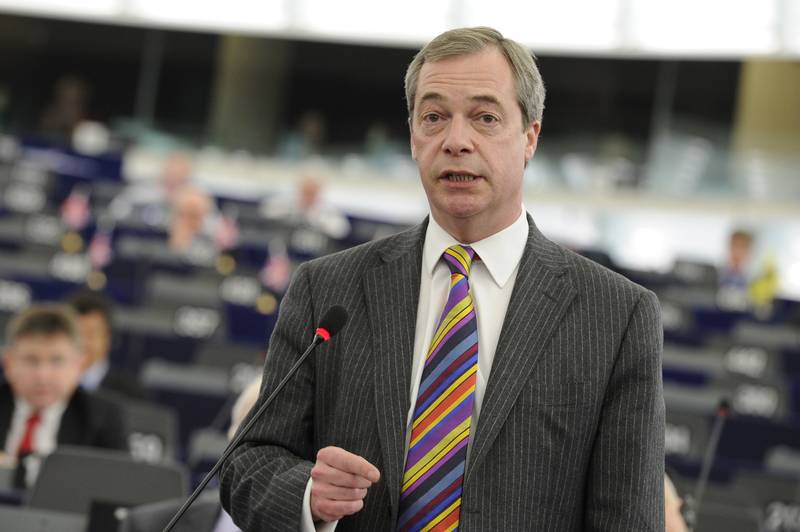 If Britain left the EU this would send s signal to the world that an adventurous country has turned into a timid one; that a country with global ambitions has opted to be a parochial bystander; that a country known for its openness to the world shuts the open door nearest to it; that a nation which has built its history on confidence towards others defines itself by resentment to others. There are still no in-depth studies of how a possible exit could affect the EU but the several ideas that are circulating in the European public domain suggest a loss of a valuable ooutlook on life - a liberal, open, trading nation with traditions. According to Ska Keller, the British judicial and parliamentary traditions have a great influence on EU. There is a danger the EU to again close itself for the world and the influence of the Franco-German motor to dangerously increase at the expense of smaller states.
If Britain left the EU this would send s signal to the world that an adventurous country has turned into a timid one; that a country with global ambitions has opted to be a parochial bystander; that a country known for its openness to the world shuts the open door nearest to it; that a nation which has built its history on confidence towards others defines itself by resentment to others. There are still no in-depth studies of how a possible exit could affect the EU but the several ideas that are circulating in the European public domain suggest a loss of a valuable ooutlook on life - a liberal, open, trading nation with traditions. According to Ska Keller, the British judicial and parliamentary traditions have a great influence on EU. There is a danger the EU to again close itself for the world and the influence of the Franco-German motor to dangerously increase at the expense of smaller states.
Is there a danger for the enlargement as Britain has always been a strong proponent of EU enlargement? According to Croatian MEP Plenkovic, there is no such a danger at the moment because the situation with enlargement has already significantly changed. But still, the EU needs to develop a plan B and to make the relevant calculations about the consequences in case of a brexit. According to Paulo Rangel, such calculations were done for the Scottish independence referendum and for Greece but certainly much more is needed given Britain's scale.
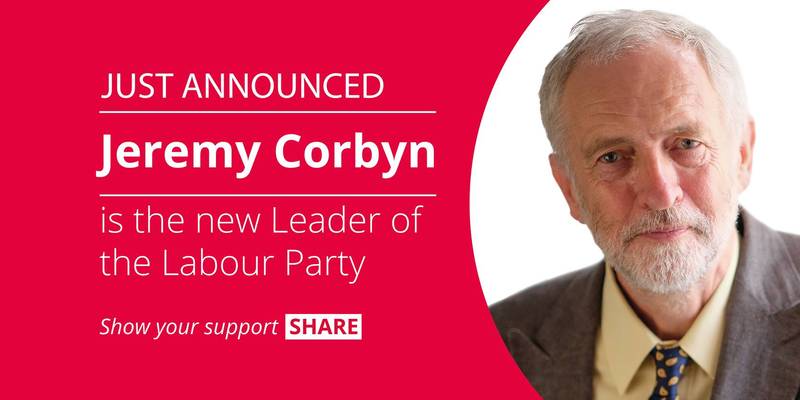 Jeremy Corbyn | © Labour
Jeremy Corbyn | © Labour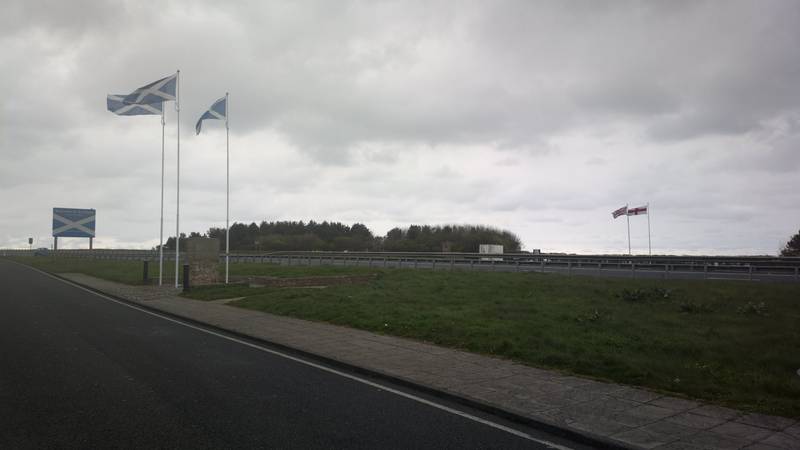 | © euinside
| © euinside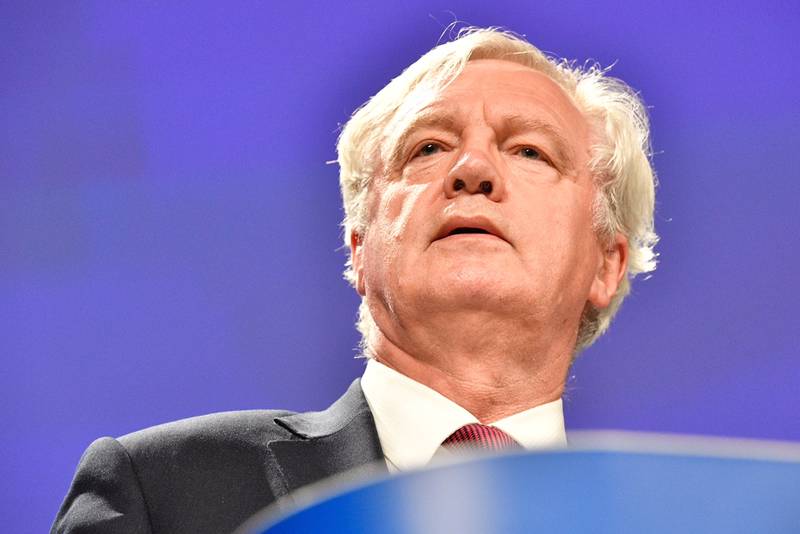 David Davis | © European Commission
David Davis | © European Commission Angela Merkel | © Council of the EU
Angela Merkel | © Council of the EU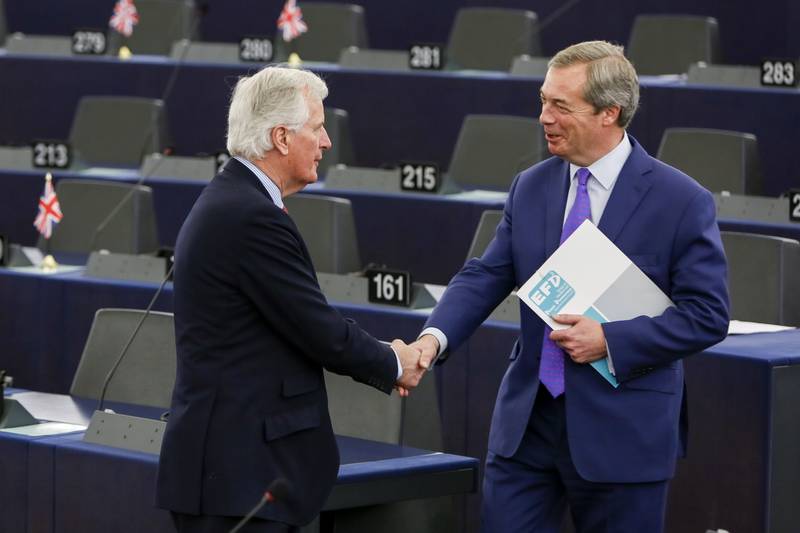 Michel Barnier, Nigel Farage | © European Parliament
Michel Barnier, Nigel Farage | © European Parliament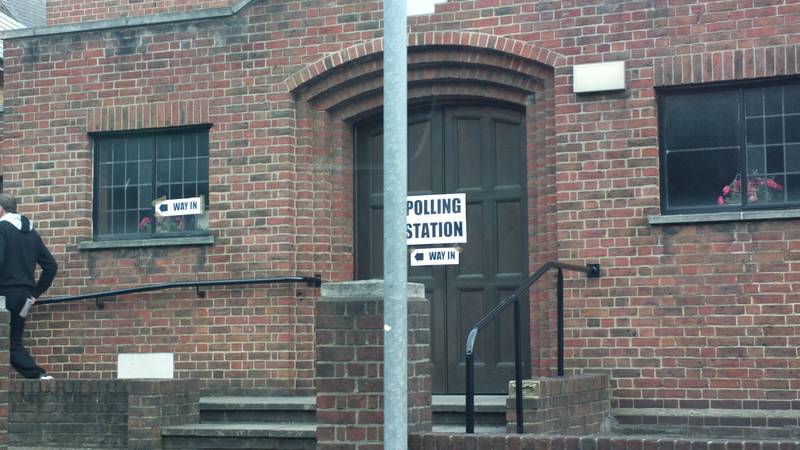 | © euinside
| © euinside